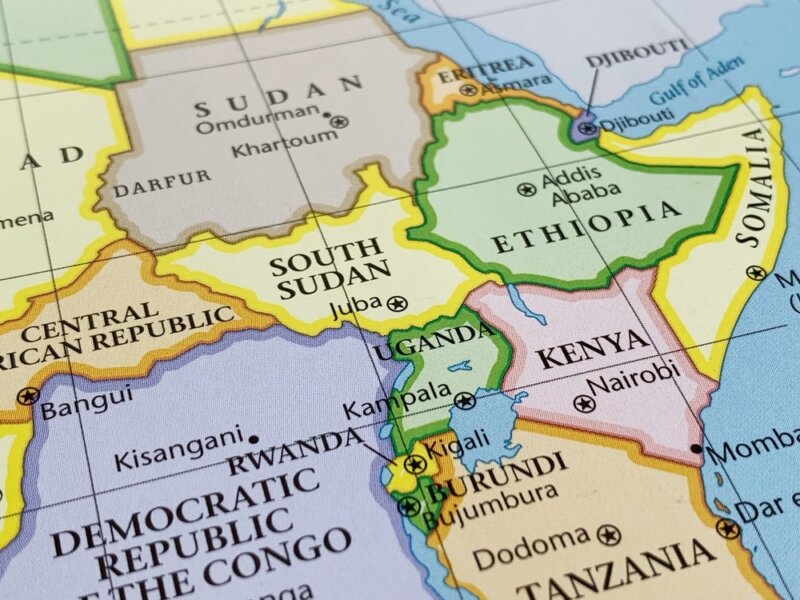Politica estera e rapporti con gli USA: il dibattito in Pakistan
Il dibattito politico interno al Pakistan sulla politica estera e i rapporti con gli Stati Uniti. L’analisi di Guido Bolaffi

Imran Khan, Primo Ministro pakistano, ha recentemente scatenato un putiferio con un articolo sul Washington Post. Nel quale, dopo quella che i retori latini avrebbero bollato come una excusatio non petita - “The Afghan and Western governments created a convenient scapegoat wrongly accusing us of providing safe havens to the Taliban and allowing free movement across our border […] Pakistan surely could not be blamed for the fact that 300.000-plus well-trained and equipped Afghan security forces saw no reason to fight the lightly armed Taliban […] the lack of legitimacy for an outsider’s protacted war was compounded by a corrupt and inept Afghan government, seen as a regime without credibility, especiallly by rural Afghans […] a more realistic approach would have been to negotiate with the Taliban much earlier avoiding the embarrassement of the collapse of the Afghan army and the Ashraf Ghani government”-, ha pensato bene di attaccare frontalmente l’America: “For the locals the US was an occupier of Afghanistan just like the Soviets, deserving of the same treatment […] by over 450 US drone strikes on our territory making us the only country in history to be so bombed by an ally […] These strikes caused immense civilian casualties, riling up anti-American (and anti-Pakistan) sentiment further”.
Affermazioni che hanno avuto una duplice, negativa conseguenza. La prima di aumentare la preoccupazione della comunità internazionale su un possibile cambiamento di schieramento del Pakistan nella geopolitica del sud est asiatico del post Afghanistan. Di cui aveva parlato lo studioso dell’Institute for Defence Studies and Analyses di New Delhi Priyanka Singh nel paper US-Pakistan Equations at a Crossroads: “The ongoing regional chaos has thrown up oft-repeated albeit pertinent questions on the future course of Us-Pakistan […] This is especially so as the Afghan flux witnesses shuffling geo-political alignments where Pakistan is now seen on the other side of the fence with China, Russia and the resurgent Taliban militia. All of whom have invariably had adversarial equations with the US either in present or in past”.
La seconda di rinfocolare i dubbi da tempo covati in seno all’amministrazione statunitense circa un possibile ruolo del Pakistan nel trionfale ritorno dell’Afghanistan in mano ai Talebani. Infatti non solo: “President Biden has not established a direct conctat with Khan even through a critical phase when American forces were on the verge of quitting their batterfield of 20 years in wich Pakistan was playing a frontline role”. Ma a poche ore dalla pubblicazione dell’articolo di cui sopra: “Twenty-two American senators moved a bill in the Senate that seeks to asses Pakistan’s alleged role in Afghanistan before and after the fall of Kabul and in the Taliban offensive in Panjshir Valley […] The proposed legislation shall include an assessment of support by state and non-state actors, including the government of Pakistan, for the Taliban between 2001 and 2020... [and]... a comprenhensive review of foreign assistance to entities that supported the Taliban”.
Ma oltre che all’estero, l’articolo di Imran Khan è riuscito a scatenare un putiferio politico anche tra le mura di casa. Innescando ad Islamabd una pericolosa confrontation con il Parlamento. Che per bocca dei rappresentanti dell’opposizione ha accusato il Primo Ministro di aver ripetutamente parlato all’estero della scontantissima vicenda afghana a nome e per conto del Paese senza però sentire il bisogno di consultarne preventivamente gli eletti. E, soprattutto, di aver violato una fondamentale regola del fairplay istituzionale.
Tirando pesantemente in ballo sulle pagine del Washington Post, con tanto di nomi e cognomi, alcuni ex Primi Ministri del suo Paese: “Governments in Pakistan following 9/11/2001 sought to please the US instead of pointing out the error in a military-dominated approach […] Pakistan’s military dictator Pervez Musharraf agreed to every American demand for military support [and] offered Washington logistics and airbases, allowed a CIA footprint in Pakistan and even turned a blind eye to American drones bombing Pakistanis on their soil […] Former president Asif Ali Zardari, undoubtedly the most corrupt man to have led the country, told the Americans to continue targeting Pakistanis because collateral damage worries you American, not me […] Nawaz Sharif, the next prime minister, was no different”
Un J’accuse vigorosamente respinto da Sherry Rehman, capo gruppo parlamentare del Pakistan People Party e Presidente del Comitato senatoriale che sovraintende la politica estera. La quale, intervenendo in aula - dopo aver premesso che: “Pakistan was faced with a moment of serious peril after the hasty pullout of US forces from Afghanitan” -, ha aggiunto: “While it is important to engage with all countries with self respect, particularly angry superpowers like the US that itself is in turmoil over its 20 years occupation of Afghanistan, what are we doing to empower our own selves? Instead of trying to unite the Parliament around a bipartisan foreign policy, the Parliament has never met on the Afghan transition […] Pakistan’s government is in a state of denial over dealing with the Parliament […] If we even try to help Pakistan, we are told our leader are corrupt. How is that helping Pakistan? […] The Prime Minister of this country needs to respect the sanctity of the Parliament and come here to discuss the situation instead of playing the blame game and disrupting unity. Is this how you defend the country?”.



